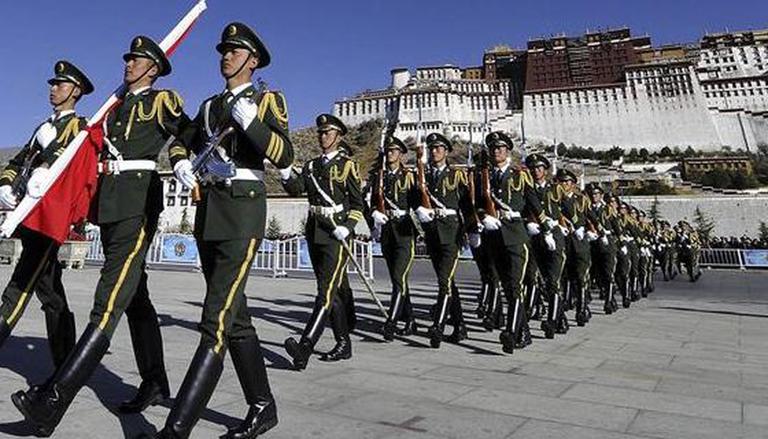Fresh Assertion of Chinese Military Expansionism
Contrary to its oft repeated assertion that China would not transform the artificial islands in the contested waters
of South China Sea (SCS) to a military base, China recently reiterated (March 22) that ‘it has right to develop
South China Sea Islands as it deems fit’. The United States has accused China of violating its commitment to
other stakeholders in the SCS as it has already militarised at least three of the several islands it built in the
disputed water way.
China first declined to accept the verdict of United Nations Convention on the Law of the Sea (UNCLOS) in
2016 on complaints of Philippines and subsequently used its economic clout to pacify the complaining country.
Now it has gone several steps ahead in its military expansionism. Recently Wang Wenbin, spokesperson of
Chinese Foreign Ministry asserted that China’s deployment of “necessary national defence facilities on its own
territory are a right entitled to every sovereign country and it is in line with international law, which is beyond
reproach”. What China calls its “own territory” are disputed islands in the SCS.
Underneath the high-voltage assertion is a threat to other stakeholders in the SCS not to question China’s claims
in the region. In the first instance, it is a blatant lie that whatever China is doing in the SCS is in compliance to
the international law. The UNCLOS tribunal had rejected China’s argument that it enjoyed historic rights over
most of the SCS. China, thereafter, was expected to resolve the dispute over claims on SCS by reconciling its
claims with those of other contending parties including Brunei, Indonesia, Malaysia, Taiwan and Vietnam. China,
as always, behaved in a big brotherly manner and denied the right of the sovereign countries in the SCS region.
It declined to accept righteous claims of other stakeholders on the islands as well as other marine resources
including gas and oil.
The Hague Tribunal had clearly pointed out that China had violated international law by causing “irreparable
harm” to the marine environment, endangering Philippines’ ships and interfering with Philippine fishing and oil
exploration.
However, China disregarded the UNCLOS verdict and was still continuing with its military expansionism. The
decision of the UNCLOS was legally binding but China does not pay any heed because compliance to the
UNCLOs depends on the good intentions of the parties to the agreement while there is no mechanism to ensure
compliance. President Xi Jinping also refused China’s participation in the tribunals proceedings. Beijing
reiterated (April 2021) that it would not abide by the tribunal’s verdict. In the meeting with the EU, Xi held that
the tribunals decision “is invalid and has no binding fence” and “China does not accept or recognise it”. The EU
had urged China to abide by the verdict of the UNCLOS.
The SCS is not important only for China, but also for other countries of the region and the world as about $ 4
trillion or one third of the global maritime trade passes through it. The recent militarisation of the islands by
China despite concerns expressed by the other stakeholders not only defies international law, but reveals the
strategic designs of China.
The disputes involve the islands, reefs, banks, and other features of the SCS, including Spratly Islands, Parcel
Islands, Scarborough Shoal and various boundaries in the Gulf of Tonkin. There are further disputes, such as the
waters near Indonesian Natuna Islands. China’s strategy of “Salami Slicing” or “Cabbage Wrapping” have
compelled the US, the UK and France to conduct Freedom of Navigation Operations (FONOP) since 2016, but
Beijing has remained undeterred despite UNCLOS decision that Chinese activities in SCS were illegal.
China’s encroachment in the waters of other stakeholders in the SCS has not only continued unabated but
increased in recent times. In January 2022, the United States Department of State called China’s claims in the
SCS “unlawful”. International legal experts too view that China’s claims on SCS based on legal and historical
evidence are invalid.
It is not only the SCS waters where China’s military expansionism is at play. Even on land territories adjoining
its borders with countries like India and Bhutan, it has tried to assert its military led expansionism, which was
foiled due to Indian Armed Forces.













